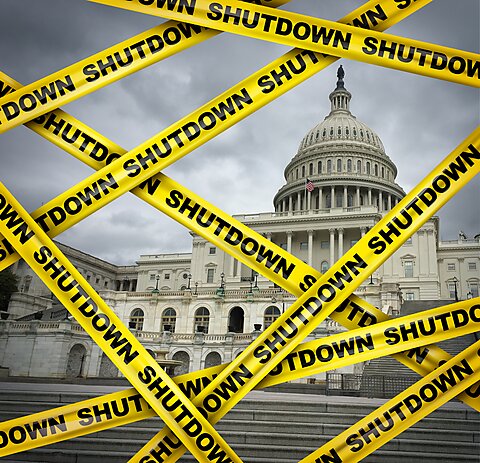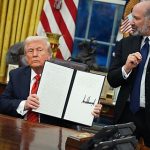
Romina Boccia
As we predicted about three weeks ago on our Debt Dispatch Substack, the federal government shut down today at 12:01 a.m.
I had a chance to speak with the Washington Post’s Early Brief Author Matthew Choi, who captured many of my thoughts well:
Romina Boccia, director of budget and entitlement policy at the pro-free market Cato Institute, said it is odd that Democrats are using this funding fight to push for health care concessions. The ACA subsidies don’t expire until the end of the year, and the Medicaid changes included in the OBBBA don’t go into effect until after the midterms.
“There’s really no pressing deadline that says you need to hold federal government employees’ pay hostage to your political demands when there’s absolutely no urgency to be picking this fight at this time,” Boccia said. “It’s clearly a political fight.”
Boccia said shutdowns rarely end well for the party who instigated it. During the 2014 [*sic] government shutdown, hard-line Republicans didn’t succeed in stopping the ACA from getting funded as they were hoping. During the 2019 shutdown, Trump didn’t get the funding for his border wall that Republicans demanded.
“The problem with going into shutdown fights like this one is that nobody seems to ask, ‘And then what?’” Boccia said. “So you’ve shut the government down. Great. You’ve thrown a temper tantrum. We all got to watch it. And now what?”
*The shutdown occurred in 2013 over disagreements concerning the fiscal year 2014 budget.
The Cato Institute press team also sent out the following statement by me yesterday:
Shutdowns rarely deliver what their instigators demand. They hand the President and OMB extra discretion—hardly a smart move for Democrats. More often, shutdowns backfire politically without lasting policy change.
Democrats’ current demands to reverse modest Medicaid savings and lock in Obamacare Covid credits have nothing to do with funding the government. They are opportunistic add-ons to signal political toughness. On the other side of this fight, Democrats may find their Emperor has no clothes.
The real driver of U.S. debt isn’t discretionary spending but the unsustainable growth of Social Security and health care spending. Shutdown fights and continuing resolutions (CRs) only distract from the worsening debt crisis.
A CR copy-pastes the bloated Biden-era budget rather than reflecting deliberate priorities of the current governing party. Hardly a win for Republicans, it’s a gimme to Democrats.
And as I discussed on air on BBC News—the last time the Democrats threatened to shut down the federal government before folding their hand at the last minute—the CR was the best option for both parties:
If you think about the game strategy here, Democrats never really had any cards in this shutdown fight. Because if the government were to shut down, the Office of Management and Budget would be in charge of determining which government functions are essential and not essential, and could have possibly kept the government shut down for a prolonged period and forced a lot of tough democratic votes over things like:
Should America’s troops get paid?
Should certain departments like the Department of Defense be able to reopen, while others that Republicans like less, like the Department of Education, would have continued to stay shut down?
In the end, this [agreeing to the CR] is really the best path forward for Democrats as well. For the American people, however, it locks in the status quo, which is excessive deficit spending, and none of the spending reductions that President Trump has offered are actually being enacted.
Those were my comments before the shutdown went into effect. After the government officially shut down at midnight, I returned to BBC News. Below are some of my remarks, lightly edited (full interview video below):
First, it’s important for folks to understand that only about 27% of the US federal government is impacted by this partial government shutdown because so much of federal government spending is actually now on autopilot, or so-called mandatory spending, which Congress doesn’t have to vote on at the end of September […].
I think [the shutdown] creates a tremendous opportunity for the administration to execute on some of its priorities. It has a lot more discretion during a government shutdown. [The shutdown] also puts in place a process for OMB to provide guidance to agencies about which workers are essential and which are not. The longer a government shutdown drags on, the more it will crystallize which of those workers are ultimately essential, at least after some time, and which ones are no longer needed. That could give the administration justification to lay off more federal workers than would otherwise be the case. These are risks that Democrats don’t seem to be fully taking into account.




